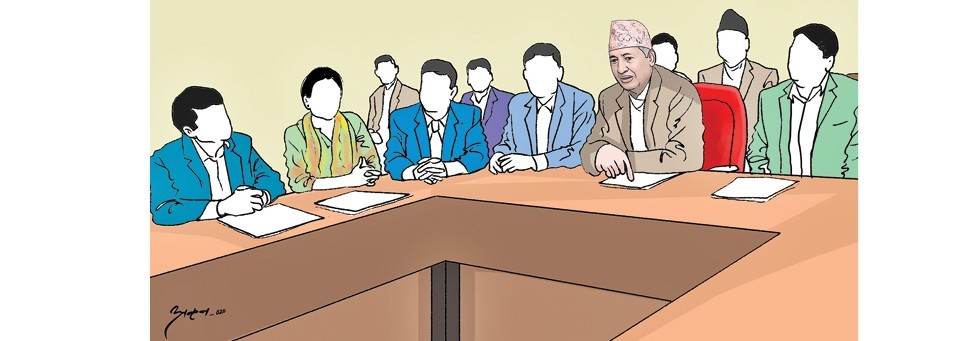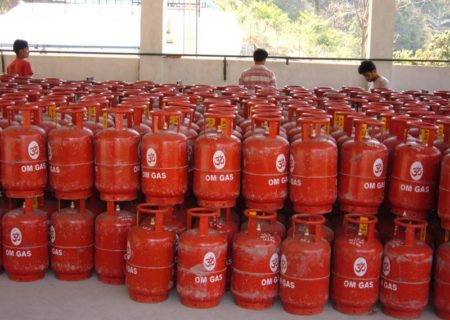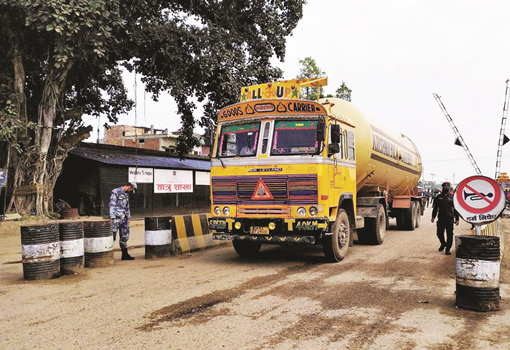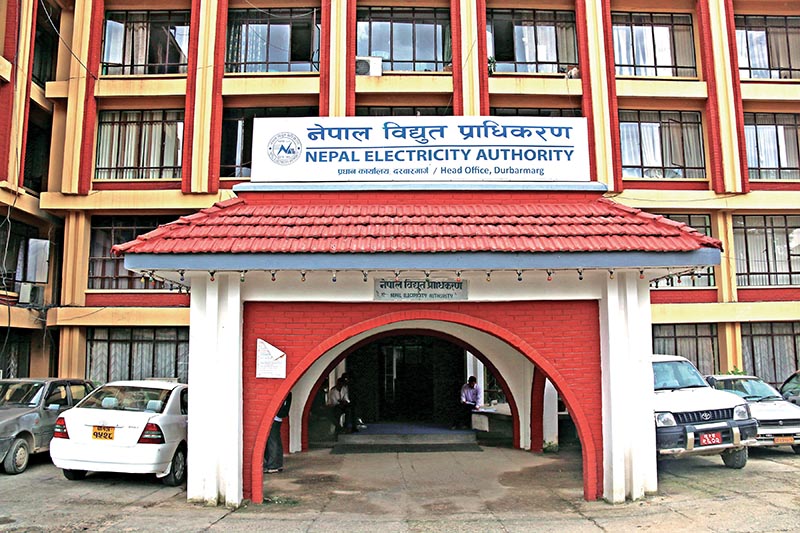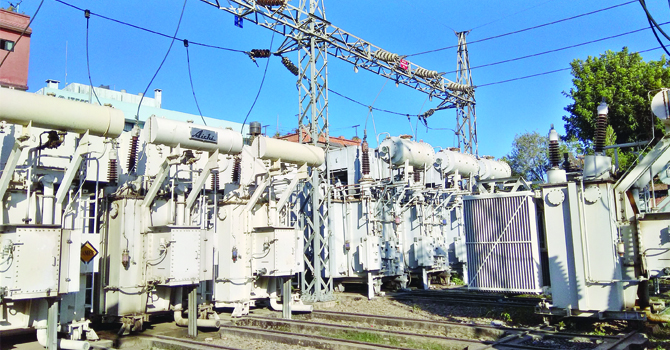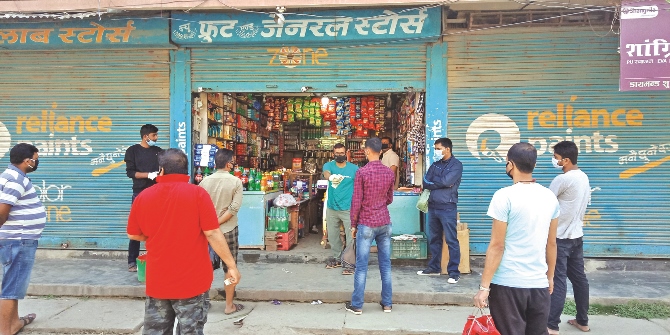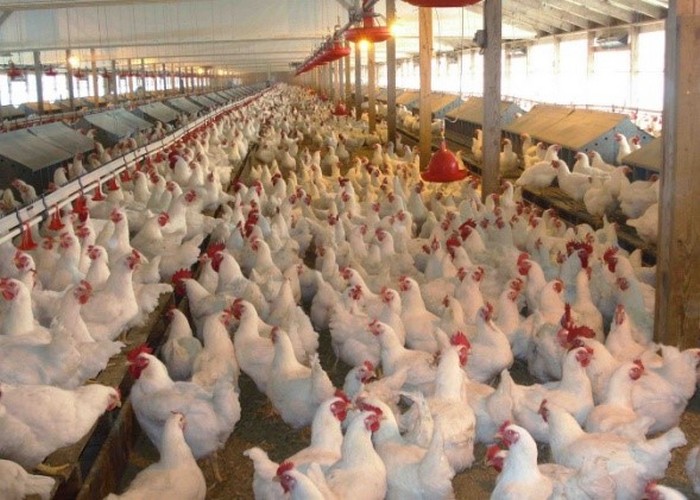Layers of middlemen, poor monitoring make goods dearer
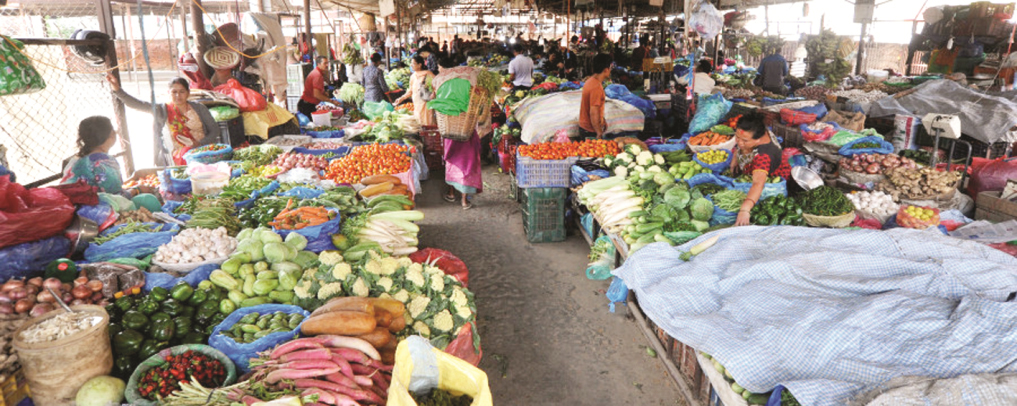
By Laxman Kafle
Kathmandu, Aug. 16: Consumers in Nepal hardly experience a visible change in their daily life despite the government's claim that it has been monitoring the market to control the anomalies of all kinds. They find cheated almost everywhere; they are hardly given a receipt and the price of the same item varies from one shop to another.
Moreover, market monitoring is often seasonal, as the authorities tend to monitor the market only on the eve of big festivals like Dashain, so they are ineffective to discourage the shopkeepers and businessmen from resorting to unethical practices. Again the authorities inspect the market only if they receive complaints from the consumers.
The traders tend to make more profit by increasing the prices of goods artificially during festivals when the demands for goods are higher. They first create an artificial shortage of goods and increase prices or sell the goods in black market at a higher rate than the market prices.
Newly enacted Consumer Protection Act has empowered the market inspectors to impose fines and penalties on the spot, if any producer, transporter, supplier, seller, or service provider is found violating the rules and flouting the norms. Likewise, according to the Consumer Protection Act, goods that do not match with the quality and content stated on the label cannot be sold. But a majority of uninformed and uneducated consumers are unaware of the goods being sold without proper labeling.
The prices of daily essential goods including sugar and vegetables have, of late, gone up significantly and the authorities fined a few shops for hiking the prices unnecessarily. However, no overall improvement has been noticed. The price of sugar reached over Rs. 95 per kilogram in the market while it was around Rs. 80 per kilogram two weeks ago. Likewise, prices of food items and vegetables have also skyrocketed.
"I have not seen the government monitoring the market to control unhealthy price hike of goods although it has been claiming so," said Bashudev Dotel, a consumer of Suryabinayak Municipality, Bhaktapur. The general consumers in the country have been forced to bear the brunt of inflation. The cost of living has been going up with an excessive rise in the prices of essential goods and services.
Dotel said that the government should inspect the market on a regular basis rather than monitoring it only during the festive season.
Five years back, the Department of Food Technology and Quality Control inspected the highway-based hotels and issued green and yellow stickers to them after carrying out the inspection.
The teams, however, have failed to give continuity to the inspection and the situation is as it used to be five years ago.
In the past, many committees were formed to eliminate the layers of middlemen in vegetable trade as their involvement was thought to be a key reason behind unreasonably high prices of vegetables in the market. But the suggestions of these committees have not been implemented yet.
Govt maintains monitoring the market proactively
The Department of Commerce, Supplies and Consumer Protection (DoCSCP), however, maintains that it has been monitoring the market in a proactive manner to ensure consumers’ rights.
Netra Prasad Subedi, director-general of the DoCSCP, said the department had mobilised five different teams inside the Kathmandu Valley to control price hike of essential goods and make people and traders aware of the health protocols to be followed to avoid the transmission of COVID-19, he said. The monitoring teams in the district levels have also been inspecting the market. The teams have the right to take necessary legal actions against the wrongdoers on the spot.
And the monitoring by the Department of Commerce, Supplies and Consumer Protection (DoCSCP) has been effective in controlling artificial price hike of surgical items. The department fined more than a dozen pharmacies for creating artificial shortage and hiking the prices of the goods.
Local governments reluctant to monitor market
Market monitoring by the government authorities has not been effective, said Madhav Timalsina, president, Consumer Rights Investigation Forum.
Weak management of the state-owned public enterprises such as Food Management and Trading Company Limited and Salt Trading Corporation has encouraged the private sector traders to cartel the market and hike the prices of goods.
The public enterprises need to open more fair-price shops across the nation in order to stop the traders from cheating the poor consumers, he said.
"If the government adopts a policy to intervene in the market, private traders will be discouraged to cheat the consumers. A strong and well-equipped market monitoring body should be in place so as to supervise the market and deal with all anomalies more effectively,” he said.
The government should fix the minimum retail price of essential goods and strictly direct traders to display the price lists to control artificial price hikes, he said.
The local governments have a vital role to play to ensure the rights of people by monitoring the market on a regular basis.
Department inspects 282 firms in lockdown, fines Rs. 15. 2 million
The Department has inspected about 282 firms, including surgical goods suppliers, pharmacies, grocery and meat shops during the lockdown alone.
Similarly, it monitored 1,871 firms and collected about of Rs. 34.73 million fines from firms involved in irregularities over the last fiscal year. The Department has sealed 14 firms, including 11 water industries and three retail shops, while inspecting 177 firms in the 30 days of Shrawan. The department collected fines amounting to Rs. 3.5 million from 63 firms, including seven pharmacies, 22 food retail shops, 10 water industries and three mask manufacturing industries. The team fined up to Rs. 200,000 to the firms based on their irregularities.
Subedi said before the daily goods reached the consumers, they passed through nine layers of middlemen!
Relying on market monitoring alone may not be sufficient
Almost a decade ago, an 18-point business code of conduct was prepared under the initiative of the Federation of Nepalese Chambers of Commerce and Industry to make the traders responsible to the consumers. This code of ethics, too, never came into effect.
Every trader must do business following ethics, as monitoring system may not always work properly where there are already over 1.3 million registered traders in the country.
The objective of market monitoring is to create fear among wrongdoers so that other traders get discouraged from doing the same. In the long run, the government and the market should focus on ensuring adequate supply and fair market practices. Relying on market monitoring alone may not be sufficient, Subedi said.
Recent News

Do not make expressions casting dout on election: EC
14 Apr, 2022
CM Bhatta says may New Year 2079 BS inspire positive thinking
14 Apr, 2022
Three new cases, 44 recoveries in 24 hours
14 Apr, 2022
689 climbers of 84 teams so far acquire permits for climbing various peaks this spring season
14 Apr, 2022
How the rising cost of living crisis is impacting Nepal
14 Apr, 2022
US military confirms an interstellar meteor collided with Earth
14 Apr, 2022
Valneva Covid vaccine approved for use in UK
14 Apr, 2022
Chair Prachanda highlights need of unity among Maoist, Communist forces
14 Apr, 2022
Ranbir Kapoor and Alia Bhatt: Bollywood toasts star couple on wedding
14 Apr, 2022
President Bhandari confers decorations (Photo Feature)
14 Apr, 2022


